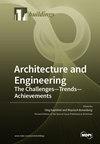Seismic Strengthening of Elevated Reinforced Concrete Tanks: Analytical Framework and Validation Techniques
IF 3.1
3区 工程技术
Q2 CONSTRUCTION & BUILDING TECHNOLOGY
引用次数: 0
Abstract
The prevalence of elevated reinforced concrete tanks is widespread across Italian water distribution networks, particularly in flat or low-relief areas. Primarily constructed by the late 1970s, these tanks often suffer from outdated hydraulic efficiency, unable to cope with the increasing urban water demands. With rising construction costs, the economic advantage has shifted toward underground tanks, leading to the decommissioning of many elevated tanks. Despite being obsolete, elevated tanks from the 1960s and 1970s still stand in densely urbanized regions. However, demolishing them may prove less cost-effective than retrofitting to restore their original structural capacity. The widespread presence of these structures, coupled with their susceptibility to decay from weathering and poor maintenance, necessitates a comprehensive assessment of their resilience against gravitational and lateral forces, including seismic activity. Consequently, there is a pressing need to develop an analysis and verification methodology, particularly focused on seismic resilience, tailored to existing elevated tanks. These structures, distinct from conventional reinforced concrete frames, are primarily designed to withstand vertical forces, emphasizing the importance of optimizing material usage in their retrofitting efforts.高架钢筋混凝土储罐的抗震加固:分析框架和验证技术
高架钢筋混凝土水箱在意大利输水管网中十分普遍,尤其是在地势平坦或地势较低的地区。这些水箱主要建于 20 世纪 70 年代末,通常水力效率低下,无法满足日益增长的城市用水需求。随着建筑成本的上升,经济优势已转向地下水箱,导致许多高架水箱退役。尽管已经过时,但上世纪六七十年代的高架水箱仍矗立在城市密集地区。然而,事实证明,拆除这些高架油罐的成本效益可能低于通过改造恢复其原有结构能力的成本效益。这些结构的广泛存在,再加上它们容易因风化和维护不善而腐烂,因此有必要对其抵御重力和侧向力(包括地震活动)的能力进行全面评估。因此,迫切需要针对现有的高架油罐制定分析和验证方法,特别是侧重于抗震性。这些结构有别于传统的钢筋混凝土框架,其主要设计目的是承受垂直力,这就强调了在改造过程中优化材料使用的重要性。
本文章由计算机程序翻译,如有差异,请以英文原文为准。
求助全文
约1分钟内获得全文
求助全文
来源期刊

Buildings
Multiple-
CiteScore
3.40
自引率
26.30%
发文量
1883
审稿时长
11 weeks
期刊介绍:
BUILDINGS content is primarily staff-written and submitted information is evaluated by the editors for its value to the audience. Such information may be used in articles with appropriate attribution to the source. The editorial staff considers information on the following topics: -Issues directed at building owners and facility managers in North America -Issues relevant to existing buildings, including retrofits, maintenance and modernization -Solution-based content, such as tips and tricks -New construction but only with an eye to issues involving maintenance and operation We generally do not review the following topics because these are not relevant to our readers: -Information on the residential market with the exception of multifamily buildings -International news unrelated to the North American market -Real estate market updates or construction updates
 求助内容:
求助内容: 应助结果提醒方式:
应助结果提醒方式:


